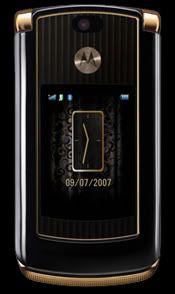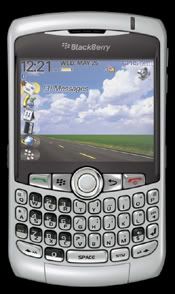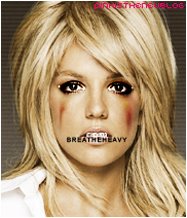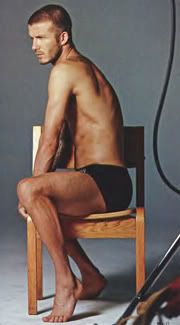Sunday, June 08, 2008
Trent Reznor Does The New York Times

"This one's on me," Mr. Reznor announces on that Web page. The album was downloaded more than a million times before the end of May, according to him. A retail CD version of "The Slip" is due shortly before Nine Inch Nails starts its tour on July 25 in Vancouver. "Aside from any kind of monetization of it, I'm glad to know that a million people have it on their iPods," Mr. Reznor said. "If you paid for it, great, but I want everyone to hear it, you know? I want to blow people's minds." He has joined the superstar exodus from major labels. Acts with large audiences and established brands like Radiohead, Madonna and the Eagles no longer need the labels' star-making clout. They have calculated that they can do better, and have more options, outside the old system. Now that Mr. Reznor has finished his contract with Interscope Records, he is following his impulses on when to release music. "I don't have to ask permission," he said. The situation suits his business sense and his temperament. In "Head Like a Hole," the climax of countless Nine Inch Nails concerts, he sings, "I'd rather die than give you control." Mr. Reznor, 43, is an unlikely combination of recluse, showman, tortured Romantic, workaholic and tech geek — which may just be an effective personality for a musician in the digital age. His songs have become perennial adolescent anthems because they blurt out frustration, fury and self-loathing in a dramatic balance of pop melodies and ominous, lacerating noise. And in conversation, he doesn't hide negative thoughts. "Fear has governed my life, if I think about it," he said. "I don't even know why I'm saying this in an interview situation, but I always feel like I'm not good enough for some reason. I wish that wasn't the case, but left to my own devices, that voice starts speaking up." He wonders, in the songs on "The Slip," whether he is irrelevant. The music revives Nine Inch Nails' past, from stomping hard rock to dance-club beats to piano ballad to inexorably building instrumentals. Yet amid walloping drums and distorted guitars — the sounds of angry youth — Mr. Reznor ponders his place in the present. "Start it up again like it matters anymore/I don't know if it does," he sings in "1,000,000." Nine Inch Nails, Mr. Reznor said, is "an aggressive, honest, naked, angry, ugly thing. I don't hear anybody doing anything like that right now that I'm aware of. Maybe there are, but it doesn't seem like it's the flavor of today." As a musician and fan, Mr. Reznor is an old-school rocker who is devoted to the album as a creative unit to be savored and pondered as a whole. But he has also reinvented himself as a digital-era adept. Unlike the Eagles and Radiohead he's not taking years to make albums; he has recognized that while he grew up treating an album like a novel, younger listeners, freely downloading music and setting their iPods on shuffle, are more likely to treat it like a magazine. Mr. Reznor lets his music travel freely at Internet speed, extending album concepts into parallel online universes. He's familiar with file-sharing sites and music blogs, including those that irk him by taking potshots at Nine Inch Nails. Playing live, his laptop now replaces pedals and effects. Mr. Reznor even posts online all the raw digital tracks from Nine Inch Nails albums for anyone to remix. "I'm done with them," he said. "Why not?" "Ghosts I-IV" grew out of ideas after a 2007 tour, which Mr. Reznor set out to record "with very little forethought," he said. He released the album in March, making it available in multiple formats, from a bargain downloadable version for $5 to standard CDs and LPs to a luxury $300 limited-edition boxed set of CDs, vinyl, DVDs and artwork. (The 2,500 copies of that set sold out immediately, for a quick gross of $750,000, and now fetch $500 on eBay.) "The Slip" was knocked out in three weeks of studio time after a month of songwriting. During the sessions he sent one song, "Discipline," to rock radio stations, which have given it Top 10 airplay. The new music, Mr. Reznor acknowledged, relies more often on reflexes than does an album like "The Fragile" (1999), on which every sound is painstakingly shaped; he said he expects his next project to take more "editorial time." With "The Slip," however, he finished recording the songs on a Wednesday and completed mixing, mastering and graphics to release the album five days later. "That was fun," Mr. Reznor said. "You never could have done that before." To release "Ghosts I-IV" and "The Slip" online Mr. Reznor found he needed software to distribute digital files, assemble databases and connect easily with other applications. That too will soon be available free. "We've spent the money to make it," Mr. Reznor said. "Take it." Going independent "was a weird feeling," he said. "It was bittersweet. It was happiness: 'We're finally, finally free of this bureaucracy. Oh, no, now what are we going to do?'" ... Mr. Reznor has no global solution for how to sustain a long-term career as a recording musician, much less start one, when listeners take free digital music for granted. "It's all out there," he added. "I don't agree that it should be free, but it is free, and you can either accept it or you can put your head in the sand." He knows what he doesn't want to do: make his music a marketing accessory. "Now just making good music, or great music, isn't enough," Mr. Reznor said. "Now I have to sell T-shirts, or I have to choose which whorish association is the least stinky. I don't really want to be on the side of a bus or in a BlackBerry ad hawking some product that sucks just so I can get my record out. I want to maintain some dignity and self-respect in the process, if that's possible these days." Nine Inch Nails was a multimillion-selling band throughout the 1990s and has steadily replenished one of rock's most loyal followings, filling arenas on tour ... Before the full band's first rehearsal, at a complex in Burbank, Mr. Reznor had an hourlong conference call with Moment Factory, a high-tech production company in Montreal. Mr. Reznor's eye for technology keeps colliding with his budget. "I don't make any money because I spend it on the production," he said. "But I can't afford to go lose money to play shows." With his longtime graphics co-conspirator, Rob Sheridan, at his side and an e-mail memo on his Mac laptop screen, Mr. Reznor went through a prospective set list, song by song, with Moment Factory, explaining where three giant video screens would be and which disorienting effects he wanted from the programmers and hardware makers — like being able to move a video frame across a musician that also changed the sound of his guitar. "What I'm trying to do is use the stage as an interactive instrument," Mr. Reznor said. "I'm in the world of science fiction now." Nine Inch Nails has been on the arena circuit since the mid-1990s. As Mr. Reznor’s audience grew, so did his ambitions and his self-destructive side: alcoholism and heroin addiction. He went through rehab in 1997, but he backslid as he labored over "The Fragile" for two years. "'The Fragile' ended me," he said. After the tour for "The Fragile," Mr. Reznor went silent for half a decade. He has been sober, he said, since 2001, but he did not release another album until "With Teeth" in 2005. He had feared that without his addictions he'd no longer be creative; he had also feared obsolescence. "I know how old I am," he said. "I'm not trying to fool anybody." ... "These days I work too much, I think, because it makes me feel good," Mr. Reznor said. "I don't know how to do that in a relationship. I don't have a family. I'd like to have one. I just haven't somehow gotten around to it yet. But I know that if I work, it's likely I'll come up with something I'm proud of and that gives me a sense of worth. Not for money or fame — it's, I feel good about it. So like any good addict, if I find something that feels good, if that feels good, maybe doing twice as much feels twice as, you know. ..." His day was just beginning. There was a photo shoot, a band rehearsal, more stage plotting. "Make me look cool," he said by way of goodbye. He caught himself, and laughed.
Brilliant. This has to be one of the most insightful profiles on Trent Reznor that I've read in a very long time. To be honest, I don't recall knowing that he suffered with a heroin addiction in his past (tho, I could just be forgetting) but I've always been impressed with the man's integrity and his commitment to staying true to his beliefs. I've been a huge NIN fan since 1988 and it is just really effing cool that they are still going strong after all these years. I can't wait to see NIN on tour later on this year ... it's been far too long since I've ventured into the depths of a mosh pit. Yes, I realize that that sounds horribly 1994 but it's really the only way to really experience Nine Inch Nails live ... so that is where I'll be. [Source]
[Permalink]



 search this site
search this site






















































































